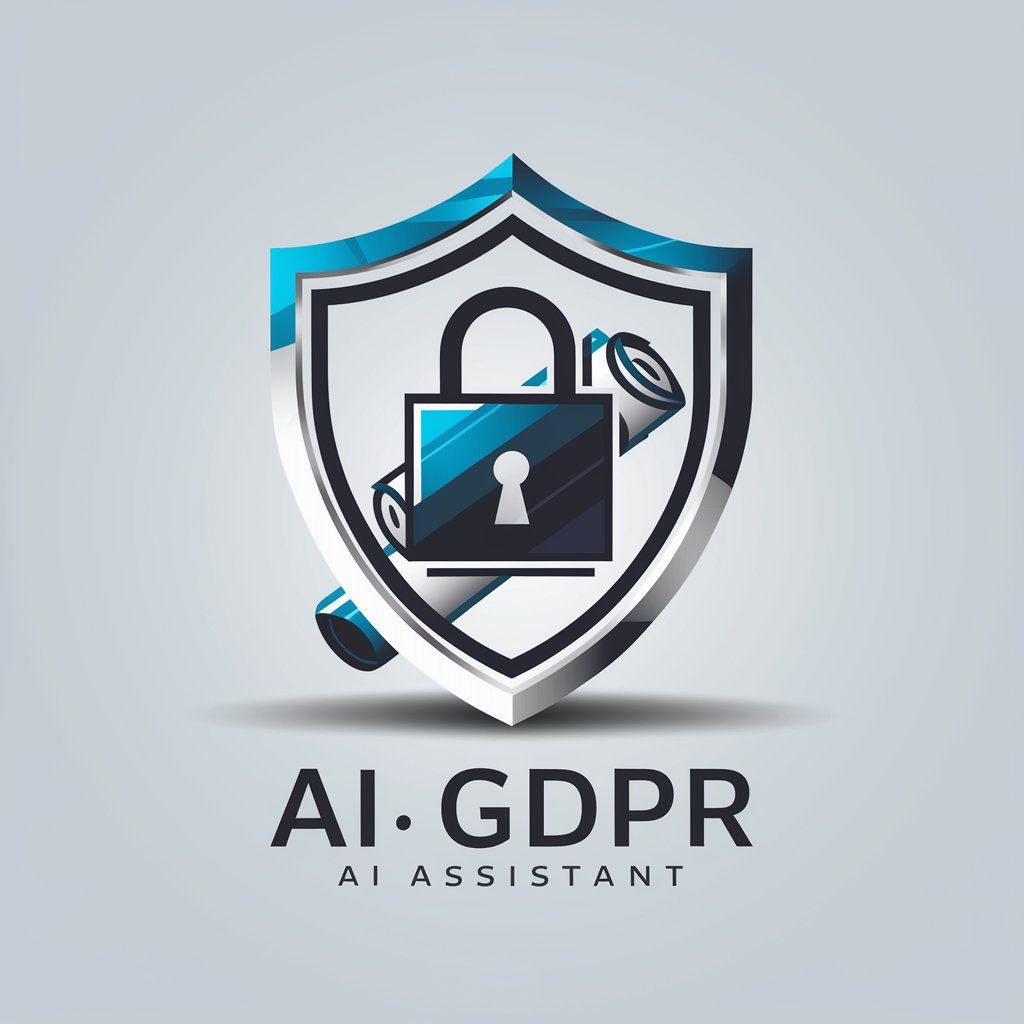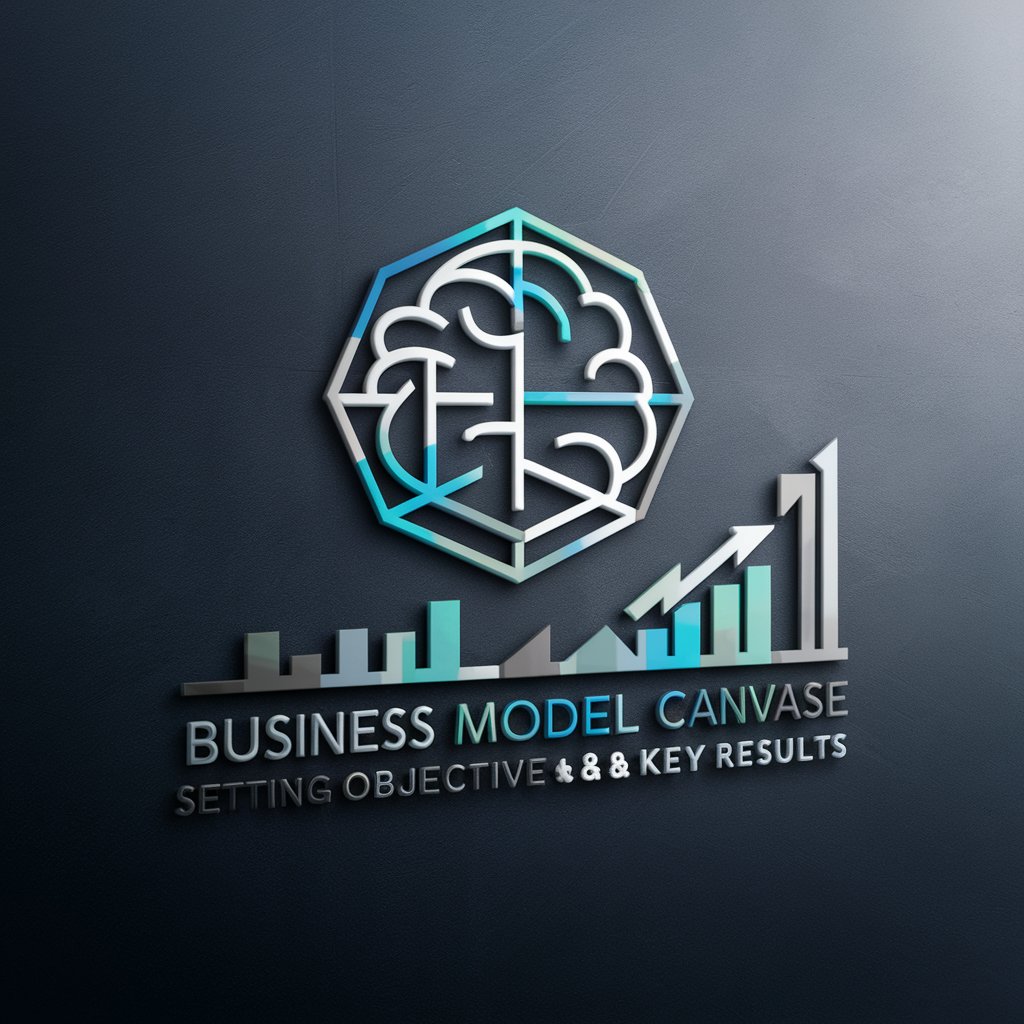
GDPR Compliance - GDPR Advisory Service

Welcome! How can I assist you with GDPR compliance today?
Navigate GDPR with AI-powered Assistance
Explain the concept of data minimization under GDPR.
What are the rights of data subjects under the GDPR?
Describe the role of a Data Protection Officer (DPO).
How does GDPR define personal data?
Get Embed Code
GDPR Compliance Introduction
The General Data Protection Regulation (GDPR) establishes guidelines for the collection and processing of personal information from individuals within the European Union (EU). It is designed to harmonize data privacy laws across Europe, protect and empower all EU citizens' data privacy, and reshape the way organizations across the region approach data privacy. Key principles include lawfulness, fairness, transparency, purpose limitation, data minimization, accuracy, storage limitation, integrity, and confidentiality【7†source】. Powered by ChatGPT-4o。

Main Functions of GDPR Compliance
Lawfulness, Fairness, and Transparency
Example
Obtaining explicit consent from individuals before processing their personal data or ensuring that the processing is transparent and the purposes are clearly communicated to the data subject.
Scenario
A company collects data from its customers. It must clearly inform the customers about how their data will be used and must obtain consent if necessary.
Purpose Limitation
Example
Collecting data for specific, explicit, and legitimate purposes and not further processing the data in a manner incompatible with those purposes.
Scenario
A healthcare provider collects personal health data for patient treatment and does not use this data for any unrelated marketing activities.
Data Minimisation
Example
Ensuring that only the data that is absolutely necessary for the specified purposes is processed.
Scenario
An online retailer collects only the necessary data to complete a purchase, avoiding unnecessary details like lifestyle preferences unless it's crucial for the service provided.
Accuracy
Example
Keeping personal data accurate and up-to-date, and taking steps to rectify or erase inaccurate data.
Scenario
A bank regularly updates its customer records and promptly corrects any inaccuracies when informed by customers.
Storage Limitation
Example
Storing personal data in a form that permits identification of data subjects for no longer than necessary for the purposes for which the personal data are processed.
Scenario
A job portal deletes the data of applicants once the application process is complete and the data is no longer needed.
Integrity and Confidentiality
Example
Processing personal data in a manner that ensures security, including protection against unauthorized or unlawful processing and against accidental loss, destruction, or damage using appropriate technical or organizational measures.
Scenario
An IT firm implements robust cybersecurity measures to safeguard the personal data it handles from data breaches or cyber attacks.
Lawful Basis for Processing
Example
Processing personal data only if there is a lawful basis for doing so, such as consent from the data subject, necessity for the performance of a contract, compliance with a legal obligation, protection of vital interests, performance of a task carried out in the public interest or in the exercise of official authority, or for the purposes of legitimate interests pursued by the data controller or a third party.
Scenario
A hospital processes patient health data because it's necessary for medical diagnosis and treatment, which is a lawful basis under GDPR.
Ideal Users of GDPR Compliance Services
Businesses Operating within the EU
Businesses, regardless of their size, that process personal data of EU residents need to comply with GDPR. This includes entities from small startups to large corporations, ensuring they protect the personal data of their customers and employees and respect their privacy rights.
Data Protection Officers (DPOs) and Compliance Managers
Professionals responsible for overseeing data protection strategy and implementation within organizations. They benefit from understanding GDPR compliance to ensure that their organizations adhere to the required standards and avoid substantial fines.
IT and Cybersecurity Professionals
Individuals who are responsible for securing data systems, implementing data protection measures, and responding to data breaches. They require a deep understanding of GDPR to ensure technical and organizational measures are in place to protect data.
Legal Professionals
Lawyers and legal advisors who need to understand GDPR to provide accurate legal guidance to organizations about data protection laws, rights, and obligations.
Consumers and Data Subjects
While not direct users of GDPR compliance services, consumers and data subjects are the primary beneficiaries of GDPR as it provides them with rights and controls over their personal data.

Guidelines for Using GDPR Compliance
Initiate the Process
Start by visiting yeschat.ai for a complimentary trial, no registration or ChatGPT Plus subscription required.
Identify Your Needs
Determine your specific GDPR compliance questions or challenges. This could range from data processing activities to understanding individual rights under GDPR.
Engage with the Tool
Utilize the tool to ask specific GDPR-related questions. Ensure clarity and specificity in your queries to receive the most accurate guidance.
Apply Insights
Implement the advice and guidelines provided by the tool within your organization’s data protection and privacy strategies.
Continuous Learning
Regularly use the tool for ongoing GDPR compliance checks and to stay informed about any regulatory updates or changes.
Try other advanced and practical GPTs
Biblical Counseling Assistant
Scriptural Wisdom with AI Precision

Benefit Bullet Pro
Turn Features into Selling Points with AI

Kaloria
AI-Powered Nutrition Tailored Just for You

Ask Dad
Empowering decisions with AI-powered advice.

(Art Style) Día de los Muertos
Bringing Culture to Life with AI Art

Thumbnail Creator: SEO-Optimized
AI-Powered Thumbnail Magic

Create A Business Model Canvas For Your Business
AI-Powered Business Model Innovation

Compare Images
Compare Images: AI-powered visual analysis tool

Product Engineer
Revolutionizing Problem-Solving in Product Engineering

Super Summary
Distilling Complexity into Clarity

Fanatic Creator
Unleash Your Fandom with AI-Powered Packaging Design

Free IPTV Smarters Expert Howto's
AI-powered IPTV Smarters Expertise

FAQs on GDPR Compliance
What is GDPR Compliance?
GDPR Compliance refers to the adherence to the General Data Protection Regulation, a legal framework that sets guidelines for the collection and processing of personal information from individuals who live in the European Union.
How can GDPR Compliance assist in data protection strategies?
The tool offers guidance on implementing robust data protection strategies, helps identify potential compliance gaps, and provides actionable recommendations to ensure adherence to GDPR requirements.
Can GDPR Compliance help with data subject rights?
Yes, it provides detailed insights on handling requests from data subjects, including access, rectification, erasure, and data portability, in accordance with GDPR provisions.
Is GDPR Compliance useful for training purposes?
Absolutely, it serves as an educational resource for teams to better understand GDPR obligations, enhancing organizational awareness and compliance posture.
How does GDPR Compliance keep up with regulatory changes?
The tool incorporates the latest GDPR amendments and interpretations, ensuring users receive up-to-date information and guidance on compliance.